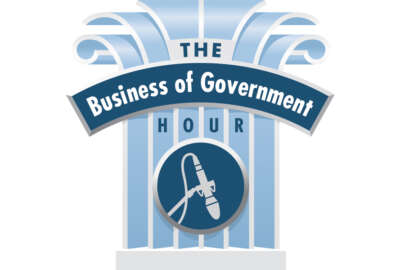First HHS chief AI officer sees promise in 100 AI use cases, but challenges moving them forward
The Department of Health and Human Services' first chief artificial intelligence officer no longer works in the federal government. But he says more agencies and...
The Department of Health and Human Services’ first chief artificial intelligence officer no longer works in the federal government. But he says more agencies and health organizations are following his example and naming their own chief AI officers.
“That’s a good sign we are moving in the right direction,” Oki Mek, the former Chief AI Officer at HHS, now the chief information security officer at Equideum Health, said on the latest episode of All About Data.
In an exit interview looking back on his tenure at HHS, Mek said his former position came into focus after agency officials inventoried more than 100 AI use cases across the department, but weren’t sure how to proceed on many of those projects.
Mek said the department wasn’t sure whether those use cases followed federal mandates, recommendations and executive orders.
Former President Donald Trump signed two executive orders promoting the use of trustworthy AI in the federal government and maintaining American leadership in AI.
“There was no clarity, in terms of, are they following that policy. Is there any governance and compliance? So there was little oversight,” Mek said.
Recent Gartner research estimates about 85% of AI projects will fail, and provide inaccurate outcomes because of bias in the data, algorithms or the teams managing them.
“They’re kind of stuck in proof of concept. That creates a lot of risks, not only from costs and reputation, but because we work a lot in AI and machine learning,” Mek said.
“We wanted to solve those issues and dive into it. That’s why we started looking at the department, and how do we come up with a strategy on AI,” he added.
Mek said data issues stood out as a persistent challenge for AI use cases at HHS — especially trying to understand where the data resides.
“Most of the work in AI and machine learning is run on data, and most of it is really processing the data, getting the data way from either hard copy or scanned documents to make that machine-readable. I think that’s the biggest challenge,” he said.
Mek said his goal was to work with the HHS chief information security officer to develop a policy in which any system that goes through the authority to operate (ATO) process includes a data dictionary.
“My goal was that I wouldn’t want to be in the business of negotiating for data. I would leave that up to the business owner, the process owner, but I would provide a mechanism for them to know where the data resides, where they could search for data and know who to contact to get those data sets. The data thing is definitely a major hurdle to overcome,” he said.
Among the agency’s 100 AI use cases, Mek said using AI for cybersecurity stood out as a particularly promising development.
“Integrating AI into cyber makes sense to me because the process is quite antiquated at the moment to fight the bad actors who are using advanced technology, AI and machine learning against us,” Mek said.
Mek said the Food and Drug Administration has also looked into using AI and machine learning to assist in reviewing and approving food, drugs and medical devices.
HHS named Mek to the CAIO position in March 2021, and he left the position less than a year later.
But during his tenure, Mek oversaw the next steps under the agency’s AI strategy, developed a Trustworthy AI playbook and launched an AI Community of Practice and AI Council.
Mek said the HHS AI strategy served as a valuable roadmap for other organizations just getting started with AI.
“A lot of people are starting from scratch in terms of AI strategy, and how do we align with all the executive orders that are coming down from OMB? I would highly recommend people, even if you’re not in the health industry, to look at the AI strategy, as well as the trustworthy playbook. We’ve been getting a lot of feedback on the materials that we have created,” he said.
Mek said the HHS community of practice helped members share best practices and create awareness around projects. The AI Council, he added, ensured that every HHS division “had a voice in how we carried out the strategy.”
“We didn’t want to do it in silos. We can’t preach that we want to break down silos, but making decisions sitting in headquarters without involving the division leads on AI,” Mek said.
Mek said HHS also held a series of lunch-and-learn programs and invited guests who won the Turing Award, the Nobel Prize equivalent for AI research and computer science.
Copyright © 2025 Federal News Network. All rights reserved. This website is not intended for users located within the European Economic Area.
Jory Heckman is a reporter at Federal News Network covering U.S. Postal Service, IRS, big data and technology issues.
Follow @jheckmanWFED






